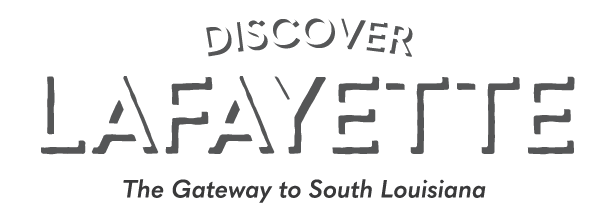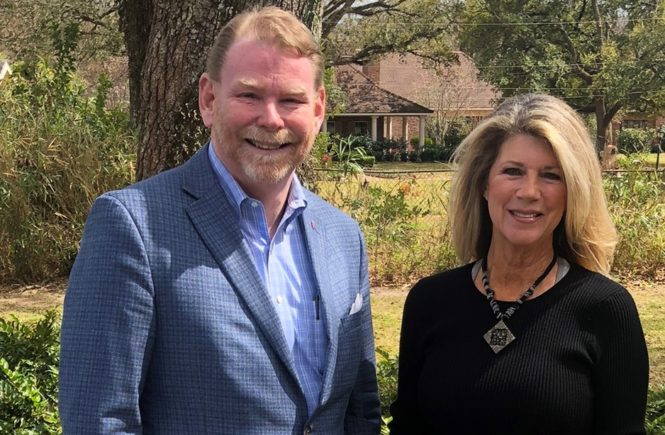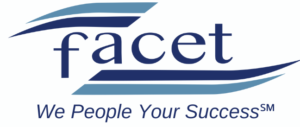Podcast: Play in new window | Download (Duration: 50:18 — 69.1MB)
John Zollinger, Executive Vice President and Director of Commercial Banking at Home Bank, joins Discover Lafayette to discuss the ways you can stay vigilant to fight fraudsters working 24/7 to get access to your financial assets. With over $5 billion in check fraud last year alone, it’s an important topic to understand.
Banks work diligently to protect their clients’ financial holdings. It is a time and energy-intensive challenge and it behooves each of us to be more aware of the ways we can protect ourselves on the front end.
Banking has changed dramatically from the days of teaching kids how to open a checking account and write checks. John spoke of the dangers of check fraud and how we should start relying less on paper checks in lieu of online banking solutions.
It has become commonplace for checks to be stolen and then ‘washed’ by eraser or chemical baths which remove the ink and allow an alteration to the original. While most checks have security features such as watermarks, threads, and holograms, and alterations can look like a third-grader did the task, with one million checks being deposited per month many fakes slip through the cracks. While artificial intelligence is used to forage out fakes, unless a check is made out for over $10,000, it is unlikely to be picked up on. So criminals make up for it in volume, and as John Zollinger says, “the check fraud business is an industry.”

“Stop writing checks when you can. Writing a check and handing it to somebody is probably still safe and secure. But writing a check and putting it in the mail with the USPS is not secure. There are people who steal mail out of the blue postal boxes. They will duplicate keys to the mailbox and take the mail out or they pick the box up and take the whole thing with them. USPS employees have also been implemented in fraud by stealing checks.”
John Zollinger is on a mission to educate bank customers and the public about the desirability of using Automated Clearing House (“ACH”) transfers for payments to third parties. By making these electronic transfers directly from your bank account, you have a low-cost way to conduct a secure transaction. “ACH is so much cheaper. While it can cost $3 to $5 for every check a business will write (cost of the check, the printer toner, the envelope, the stamp, time involved to mail it, etc.) it costs 10 cents per ACH transfer. ACH transfers clear in a day or two. From a payment perspective and efficiency, you can’t beat the ACH process.”
He also advocates for the “Positive Pay” app, an optional check fraud prevention service for businesses that use online banking. The customer uploads into Positive Pay all issued check data with information on the payee, date, amount, etc. Checks presented for payment against the bank account are compared to the information sent by the business to Home Bank. Any check not on the issued check list is sent back to the client as an exception for review, to either return or approve the item. This gives the business a chance to ferret out fraud or mistakes with ongoing assistance from the bank.

“Our ability to serve clients through technology continues to improve. We spend more today on technology than on our facilities. Ten years ago the industry said checks were going away. We said the same thing five years ago, but checks are still here. I don’t know if they’ll ever go away unless banks say they won’t continue to offer that service. Zelle, Venmo, and other cash-trading apps are very secure. They can be trusted. Especially Zelle which was created by Wells Fargo. But there is no practical difference between Zelle and Venmo.”
John recommends that you should be leery of almost anything and everything that comes into your email inbox with a link to click. Don’t automatically trust emails as that is where hackers come in. You can head off almost anything insofar as a financial loss by taking your time to investigate the message. Does it use proper grammar? Is the email address consistent with the domain name? Should you make a call to the establishment to verify the message?
John also recommends using the “tap to pay” feature on your credit or debit card to prevent ‘skimming,’ a practice that allows thieves to obtain personal data from debit or credit cards when they are used at an ATM machine or a merchant location. If you have to swipe your card at the gas pump, tug on the device you put your card into and make sure there is no skimmer on top of it. Card skimmers are a common way to have your card number stolen or your account hacked.
“Fraudsters spend 100% of their time trying to take advantage of us. And people spend maybe 10% of their time trying to prevent being taken advantage of. People are generally nice and trusting and fraudsters capitalize on that. When it comes to your finances, don’t be nice, don’t be trusting,” John Zollinger says.
One of the saddest aspects of bank fraud, according to John Zollinger, are the”fronts,” the people who are paid to go cash checks that are altered and fraudulent. They are typically homeless or drug-addicted and are not aware of the criminal liability they may face by participating in bank fraud for a small payment to perform a service.
It’s important to build a relationship with your banker and ask for ways to protect yourself and your business from fraud. Each person’s situation is different. “Having a personal relationship with a banker is important. Digital banking is convenient. But when it comes to doing things the right way, the secure way, in managing your business and your cash, having that conversation with a banker is important.”

Password creation is such an important topic. “If you include a word in your password, it is not nearly as secure as a random password. A good way to create a password is to come up with a phrase and use the first letter and last letter of each word in the phrase. Don’t use the same password for all your accounts. Use Password Keeper or a similar app to secure your information.” It is also a prudent practice to utilize two-factor authentication for signing into anything secure; sign in with a password plus a code texted to you for verification.
John Zollinger is celebrating his 12th year with Home Bank and his 32nd year as a banker in 2022. He is married to the former Christina (“Tina”) Taulli and they have 3 children; Zoë, John V (“Jake”), and Quincy. We thank him and Home Bank for all they do to serve their customers.
We also thank Home Bank for their sponsorship of Discover Lafayette! For more information on the many ways they may assist you, please visit https://www.home24bank.com/.




